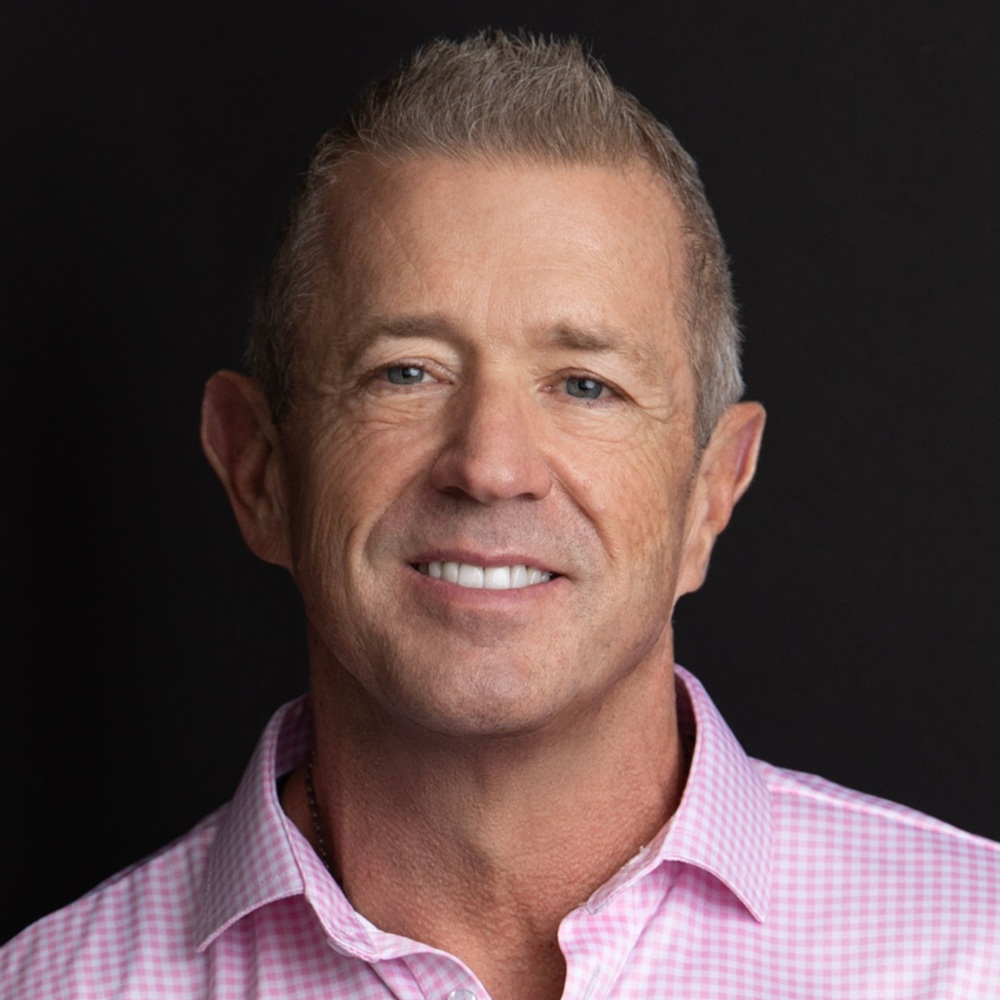Striking Oil in Opportunity Zones: Now Might Be the Best Time to Invest
You could unlock hidden wealth in QOZs with strategic oil and gas investments, potentially combining tax advantages with long-term growth in an essential industry.


Profit and prosper with the best of Kiplinger's advice on investing, taxes, retirement, personal finance and much more. Delivered daily. Enter your email in the box and click Sign Me Up.
You are now subscribed
Your newsletter sign-up was successful
Want to add more newsletters?

Delivered daily
Kiplinger Today
Profit and prosper with the best of Kiplinger's advice on investing, taxes, retirement, personal finance and much more delivered daily. Smart money moves start here.

Sent five days a week
Kiplinger A Step Ahead
Get practical help to make better financial decisions in your everyday life, from spending to savings on top deals.

Delivered daily
Kiplinger Closing Bell
Get today's biggest financial and investing headlines delivered to your inbox every day the U.S. stock market is open.

Sent twice a week
Kiplinger Adviser Intel
Financial pros across the country share best practices and fresh tactics to preserve and grow your wealth.

Delivered weekly
Kiplinger Tax Tips
Trim your federal and state tax bills with practical tax-planning and tax-cutting strategies.

Sent twice a week
Kiplinger Retirement Tips
Your twice-a-week guide to planning and enjoying a financially secure and richly rewarding retirement

Sent bimonthly.
Kiplinger Adviser Angle
Insights for advisers, wealth managers and other financial professionals.

Sent twice a week
Kiplinger Investing Weekly
Your twice-a-week roundup of promising stocks, funds, companies and industries you should consider, ones you should avoid, and why.

Sent weekly for six weeks
Kiplinger Invest for Retirement
Your step-by-step six-part series on how to invest for retirement, from devising a successful strategy to exactly which investments to choose.
In the ever-changing landscape of investment opportunities, sometimes the most lucrative prospects are found where others aren't looking. As we navigate through 2025, one such overlooked gem might be right under our noses — or, more accurately, under our feet.
You've heard it a thousand times: "Buy low, sell high." It's the mantra of successful investors worldwide. But in today's market, with years of gains priced in, where can we find that elusive "low" with the potential to soar?
The answer might surprise you: the energy sector, specifically oil and gas investments within qualified opportunity zones (QOZs).
From just $107.88 $24.99 for Kiplinger Personal Finance
Become a smarter, better informed investor. Subscribe from just $107.88 $24.99, plus get up to 4 Special Issues

Sign up for Kiplinger’s Free Newsletters
Profit and prosper with the best of expert advice on investing, taxes, retirement, personal finance and more - straight to your e-mail.
Profit and prosper with the best of expert advice - straight to your e-mail.
Kiplinger's Adviser Intel, formerly known as Building Wealth, is a curated network of trusted financial professionals who share expert insights on wealth building and preservation. Contributors, including fiduciary financial planners, wealth managers, CEOs and attorneys, provide actionable advice about retirement planning, estate planning, tax strategies and more. Experts are invited to contribute and do not pay to be included, so you can trust their advice is honest and valuable.
Now, I know what you're thinking. "Oil and gas? In 2025? Aren't we moving toward green energy?" Yes, we are — but not as quickly as some might have believed.
The reality is that our world still runs on fossil fuels and will continue to do so for the foreseeable future. This disconnect between perception and reality is creating a unique investment opportunity.
Let's break it down
1. Market undervaluation. The energy sector lagged in 2024, with many investors shying away due to environmental concerns and the push for renewables. This led to depressed valuations across the board, from exploration companies to midstream operators.
2. Technological advancements. The oil and gas industry isn't stagnant. Innovations like hydraulic fracturing and horizontal drilling have revolutionized production capabilities. The U.S. has the potential to be a net energy exporter, a scenario that was unthinkable just a decade ago.
3. Ongoing demand. Despite the buzz around electric vehicles and renewable energy, global demand for oil and gas continues to grow, not shrink. The transition to green energy is happening, but it's a marathon, not a sprint. The simple truth is, the world is likely to always have a need for oil and gas.
4. QOZ tax benefits. Qualified opportunity zones offer significant tax advantages, including deferred capital gains taxes and potential tax-free growth if held for at least 10 years.
Why these QOZ funds are so interesting
Now, let's talk about why QOZ funds focused on oil and gas are particularly intriguing.
First, many QOZs are located in areas rich in energy resources. Texas, Pennsylvania and Louisiana — all home to major oil and gas fields — have multiple designated opportunity zones. This geographical alignment creates a perfect window of opportunity.
Second, the structure of QOZ funds aligns well with the capital-intensive nature of oil and gas projects. These funds must deploy capital quickly and maintain most of their assets in qualified properties — a natural fit for energy infrastructure investments.
Last but not least, the 10-year holding period required to maximize QOZ tax benefits matches the long-term nature of energy investments. Oil and gas projects often take years to develop and reach peak production, aligning nicely with the QOZ timeline.
What are the risks?
But what about the risks? Sure, they exist. There's no such thing as a risk-free investment. The push toward renewable energy is real, and regulatory changes could impact the industry.
However, these risks are largely priced into current valuations, creating an attractive risk-reward profile for savvy investors.
Moreover, the transition to green energy just isn't as straightforward as it might seem. Electric vehicles, often touted as the future of transportation, come with their own set of challenges, from rare metal mining (an environmental nightmare) to electricity generation (which remains largely dependent on fossil fuels, especially coal).
The reality is, oil and gas will play a crucial role in our energy mix for decades to come.
As a financial adviser based in Texas, I've seen firsthand the explosive potential of oil and gas investments. I've also witnessed the transformative impact of QOZ investments on local communities. Combining these two powerful forces could not only yield significant returns but also contribute to economic development in underserved areas.
Of course, like any investment, due diligence is crucial. Not all QOZ funds are created equal, and the specific focus of an oil and gas fund can greatly impact its risk-and-return profile. It's essential to thoroughly research any fund's strategy, management team and track record before investing.
Contrarians, take note: While the crowd chases the next big tech stock or cryptocurrency, savvy investors might want to look toward the oil fields. QOZ funds focused on energy present a unique opportunity to potentially benefit from both tax advantages and the long-term prospects of an essential industry.
Successful investing often means having the courage to zig when others zag. In 2025, as the energy sector lags and QOZ funds offer unprecedented tax benefits, that zag might just lead you to strike oil. The oil and gas sector within QOZs could be a classic overlooked opportunity, offering a chance to truly "buy low" with the potential to "sell high" down the road.
Related Content
- Tax Advantages of Oil and Gas Investments: What You Need to Know
- 1031 Exchanges vs Opportunity Zones: Which Has the Edge?
- Opportunity Zone Investing Still Hot Despite Looming Sunset
- Four Reasons to Tap Opportunity Zones Before They Expire
- Five Strategies to Defer Capital Gains in Real Estate Investing
Profit and prosper with the best of Kiplinger's advice on investing, taxes, retirement, personal finance and much more. Delivered daily. Enter your email in the box and click Sign Me Up.

Daniel Goodwin is a Kiplinger contributor on various financial planning topics and has also been featured in U.S. News and World Report, FOX 26 News, Business Management Daily and BankRate Inc. He is the author of the book "Live Smart - Retire Rich" and is the Masterclass Instructor of a 1031 DST Masterclass at www.Provident1031.com. Daniel regularly gives back to his community by serving as a mentor at the Sam Houston State University College of Business. He is the Chief Investment Strategist at Provident Wealth Advisors, a Registered Investment Advisory firm in The Woodlands, Texas. Daniel's professional licenses include Series 65, 6, 63 and 22. Daniel’s gift is making the complex simple and encouraging families to take actionable steps today to pursue their financial goals of tomorrow.
-
 Quiz: Do You Know How to Avoid the "Medigap Trap?"
Quiz: Do You Know How to Avoid the "Medigap Trap?"Quiz Test your basic knowledge of the "Medigap Trap" in our quick quiz.
-
 5 Top Tax-Efficient Mutual Funds for Smarter Investing
5 Top Tax-Efficient Mutual Funds for Smarter InvestingMutual funds are many things, but "tax-friendly" usually isn't one of them. These are the exceptions.
-
 AI Sparks Existential Crisis for Software Stocks
AI Sparks Existential Crisis for Software StocksThe Kiplinger Letter Fears that SaaS subscription software could be rendered obsolete by artificial intelligence make investors jittery.
-
 Quiz: Do You Know How to Avoid the 'Medigap Trap?'
Quiz: Do You Know How to Avoid the 'Medigap Trap?'Quiz Test your basic knowledge of the "Medigap Trap" in our quick quiz.
-
 5 Top Tax-Efficient Mutual Funds for Smarter Investing
5 Top Tax-Efficient Mutual Funds for Smarter InvestingMutual funds are many things, but "tax-friendly" usually isn't one of them. These are the exceptions.
-
 Why Invest In Mutual Funds When ETFs Exist?
Why Invest In Mutual Funds When ETFs Exist?Exchange-traded funds are cheaper, more tax-efficient and more flexible. But don't put mutual funds out to pasture quite yet.
-
 We Retired at 62 With $6.1 Million. My Wife Wants to Make Large Donations, but I Want to Travel and Buy a Lake House.
We Retired at 62 With $6.1 Million. My Wife Wants to Make Large Donations, but I Want to Travel and Buy a Lake House.We are 62 and finally retired after decades of hard work. I see the lakehouse as an investment in our happiness.
-
 Social Security Break-Even Math Is Helpful, But Don't Let It Dictate When You'll File
Social Security Break-Even Math Is Helpful, But Don't Let It Dictate When You'll FileYour Social Security break-even age tells you how long you'd need to live for delaying to pay off, but shouldn't be the sole basis for deciding when to claim.
-
 I'm an Opportunity Zone Pro: This Is How to Deliver Roth-Like Tax-Free Growth (Without Contribution Limits)
I'm an Opportunity Zone Pro: This Is How to Deliver Roth-Like Tax-Free Growth (Without Contribution Limits)Investors who combine Roth IRAs, the gold standard of tax-free savings, with qualified opportunity funds could enjoy decades of tax-free growth.
-
 One of the Most Powerful Wealth-Building Moves a Woman Can Make: A Midcareer Pivot
One of the Most Powerful Wealth-Building Moves a Woman Can Make: A Midcareer PivotIf it feels like you can't sustain what you're doing for the next 20 years, it's time for an honest look at what's draining you and what energizes you.
-
 Stocks Make More Big Up and Down Moves: Stock Market Today
Stocks Make More Big Up and Down Moves: Stock Market TodayThe impact of revolutionary technology has replaced world-changing trade policy as the major variable for markets, with mixed results for sectors and stocks.